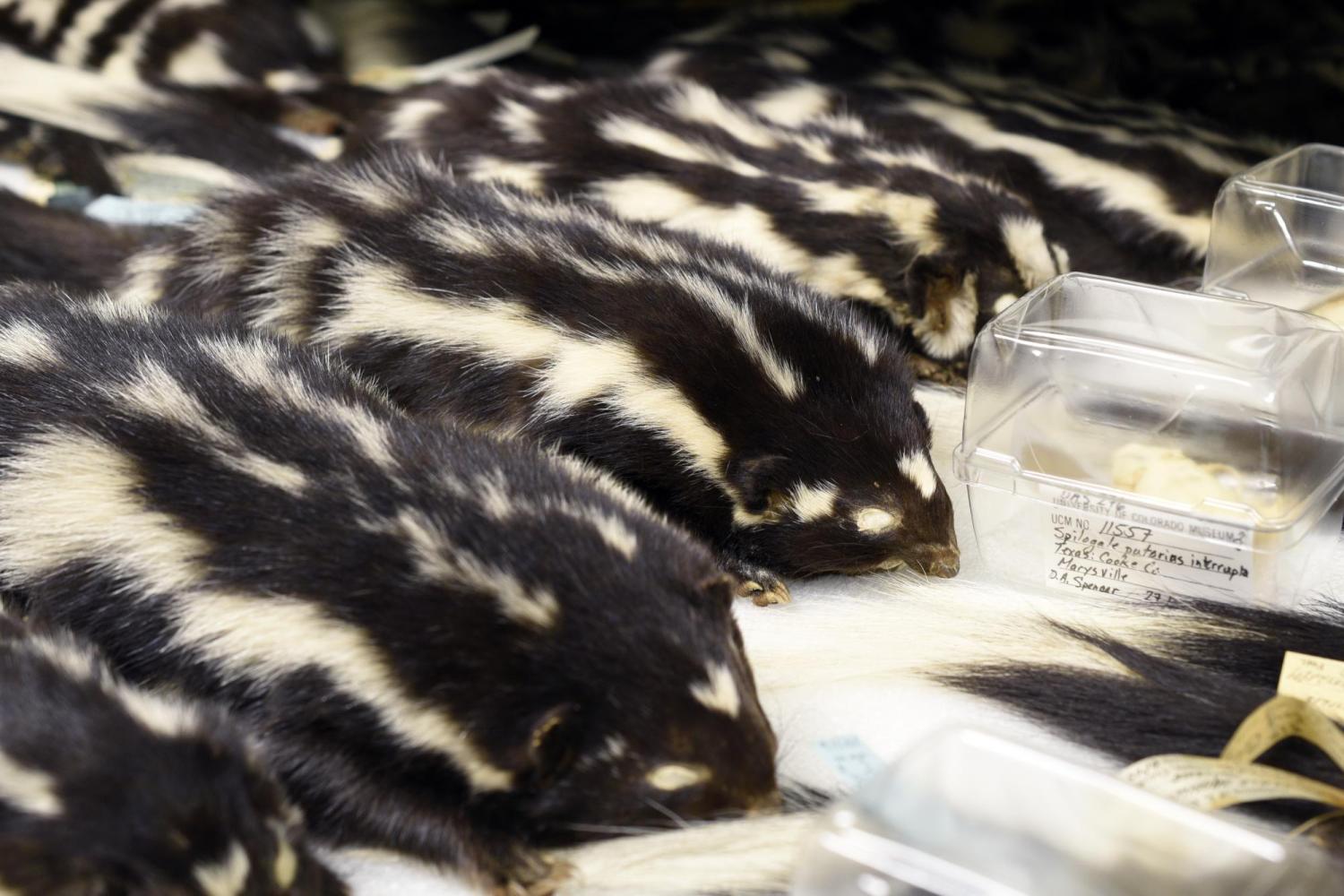The CU Museum is closed. We will be reopening soon.
During this time, collection visits will be available by appointment and other special access requests will be considered on a case-by-case basis.
Please email cumuseum@colorado.edu for more information.
Eastern Spotted Skunk
The Eastern spotted skunk gets its name from the broken stripes along its back. Both the Eastern and Western spotted skunk ranges overlap in Colorado. Eastern spotted skunks are the only species of skunk known to climb, inhabiting rocky, woody or tallgrass prairie habitats, while the western spotted skunk prefers rocky canyons and brushlands. Like other Mephitids, (the family of mammals including skunks and stink badgers) spotted skunks are nocturnal. While they are famous for the oily musk excreted when threatened, not every encounter with a skunk results in getting sprayed. When startled, frightened or intimidated, skunks will often give fair warning with an elaborate handstand stance before taking aim. This natural tear gas emerges from well-developed scent glands located on either side of their anus and can accurately mist predators 20 feet away!
Indoors, this drawer of spotted skunk study skins and skulls reside in the CU Museum’s Mammalogy collection and are used to show variation among individuals of the same species. Study skins are stuffed in a standard compact pose to create a common unit of comparison across museum collections. Quantifying subtle differences in body size, color, and patterning helps researchers to better define species boundaries. Describing species traits and the acceptable level of variation within each character was the primary method of classifying flora and fauna until the advent of molecular sequencing, and still plays a very large role in describing new species. Here, a cotton eye is visible in each study skin, as the skunk’s carcass is removed and replaced with stuffing when prepared as a museum specimen. Each clear box holds the accompanying skull, another important element in diagnosing mammal species identifications.
Scientific Name: Spilogale putorius
Date Collected: December 27, 1933
Locality: Texas, Cooke county, Marysville
Collector: D.A. Spencer
View in database


